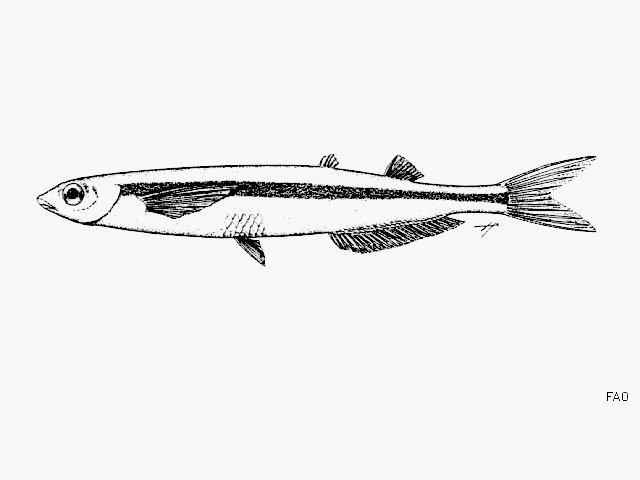| Atherinopsidae (Neotropical silversides), subfamily: Atherinopsinae |
| 19 cm TL (male/unsexed); max. reported age: 8 years |
|
pelagic-neritic; marine; depth range 0 - 18 m |
| Eastern Pacific: Monterey Bay, USA to Baja California Sur, Mexico. |
|
Dorsal spines (total): 4-8; Dorsal soft rays (total): 8-10; Anal spines: 1-1; Anal soft rays: 20-24; Vertebrae: 47-50. Branchiostegal rays: 6 (Ref. 36497). |
| Adults inhabit inshore waters, usually at or near surface along open coast and in bays (Ref. 36497). Oviparous, with planktonic primarily neustonic larvae (Ref. 36497). Eggs are deposited in the sand at night by the female parent (Ref. 58332) just below the high spring tide line (Ref. 36497). Minimum depth reported taken from Ref. 57178. |
|
Not Evaluated (N.E.) Ref. (130435)
|
| harmless |
|
Rare north of southern California. Grunion hunting has become a popular sport in southern California and licensed sport fishermen are allowed to catch adults by hand when they are on the beach (Ref. 2850). Also Ref. 9273. |
Source and more info: www.fishbase.org. For personal, classroom, and other internal use only. Not for publication.

